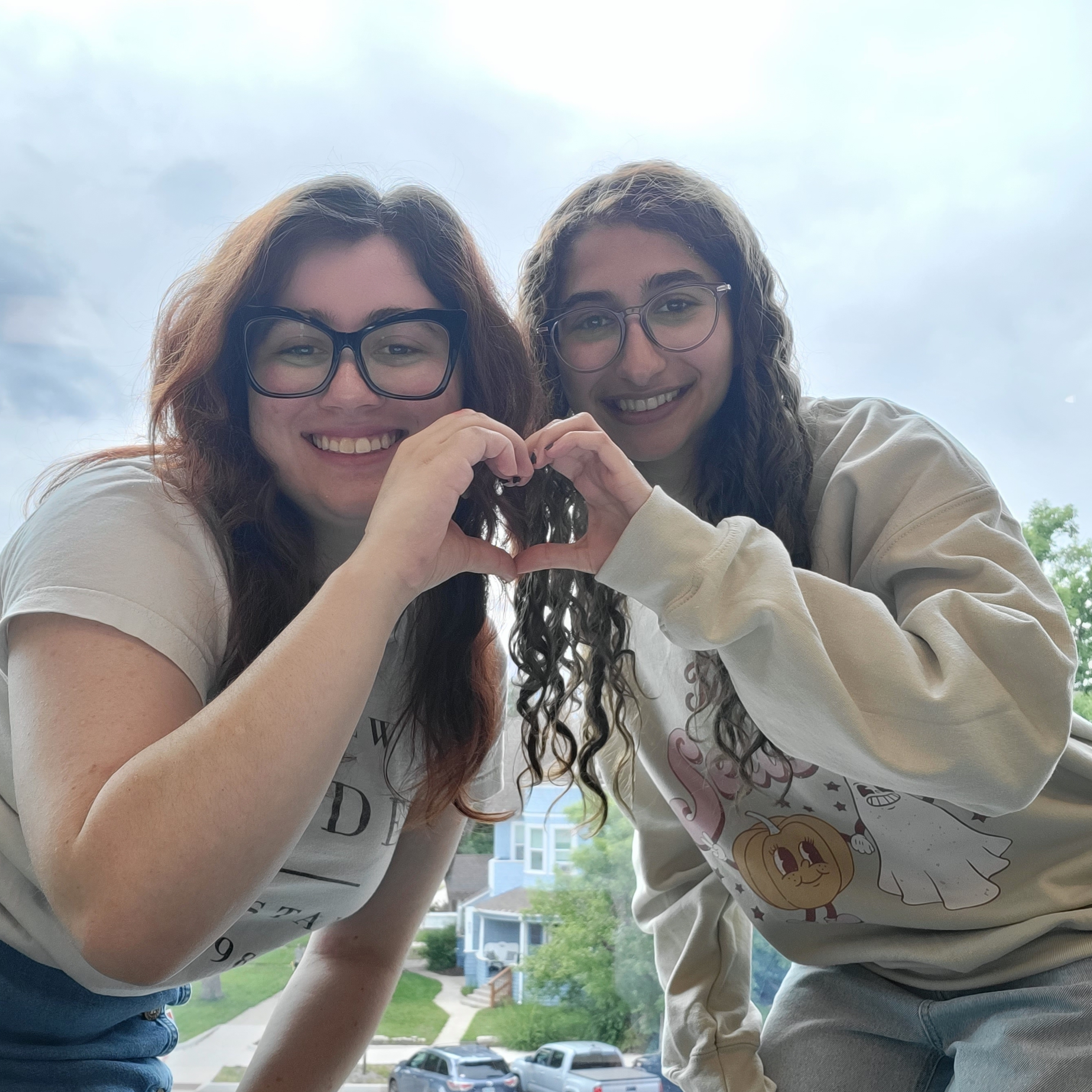Last spring, Charlotte Combe ’26 and Mona Hamad ’25 founded Substance Use Harm Reduction at Colorado College with three goals in mind: to provide a small and consistent group of club members to train for and volunteer at the community partner’s syringe exchange program; to provide opportunities for CC students to learn about harm reduction and overdose prevention on campus through workshops, events, and the creation of education resources; and to organize for harm reduction advocacy at the city and state level through phone banking, writing legislators, and testifying in support of bills.
To accomplish this, the two students partnered with Love Alive, a community-based initiative created by CC alumni in response to the large overdose rates in El Paso County. Love Alive provides fentanyl test strips and Narcan to community members, as well as offering various training sessions, including Narcan administration, overdose prevention training for local businesses, and harm reduction training in faith communities.
Melissa Chizmar ’15, who graduated from CC with a degree in Psychology, is the prevention services manager at Love Alive.
“In El Paso County, overdose rates have increased in recent years, making harm reduction an even more vital tool in saving lives,” says Combe. “After meeting with Love Alive in person, we became excited about potentially providing consistent volunteers for their syringe services program. Through the syringe access program, people experiencing houselessness can get access to clean syringes for free and are connected to community resources like free bus transportation.”
Combe’s journey with substance use harm reduction principles began after a student at her high school overdosed and passed away at a gas station a block away from their school during his lunch break.
“My whole life, I've been taught an abstinence, ‘D.A.R.E’ model of drug use; adults always told me to ‘just say no’ to drugs,” Combe says. “The thing is that doesn’t reflect reality. According to the National Survey on Drug Use and Health, 19.7 million American adults, aged 12 and older, battled a substance use disorder in 2017. It’s likely that many people reading this right now have struggled with addiction or personally know someone who has. Clearly, the ‘just say no’ model of drug use prevention doesn’t meet people where they are.”
“Similar to Charlotte, my interest in safer substance use and harm reduction principles began as a response to restrictive education,” says Hamad. “Growing up in Texas, the heart of the Bible Belt, the only education we received was abstinence-based. Substance users were stigmatized and depicted as individuals with minimal formal education and violent criminals, not as humans with addictions. I vividly remember crowding around wheel-in TV screens as early as sixth grade to watch videos on how ‘marijuana is a gateway drug’ and to ‘never give in to peer pressure.’ I also watched how this form of education, and lack thereof, had significant negative repercussions.”
According to the Substance Abuse and Mental Health Services Administration, harm reduction is a practical approach that centers the lived and living experiences of people who use drugs and incorporates community-driven public health strategies.
“Harm reduction recognizes that everyone is on their own journey with substance use, and that everyone deserves to be treated with compassion and respect regardless of whether they use drugs or not,” Combe says. “The purpose of harm reduction is to keep people alive so they can use drugs safely and have the option to stop using substances on their own in terms and in their own time. We use tools to mitigate potential harm everyday — seatbelts, sunscreen, birth control. Why should it be any different with drug use? Studies show that when people have access to clean syringes, naloxone, and education about safe drug use, lives are saved.”
“Working as an EMT in Houston, I also recognized how substance users are underserved and mistreated,” Hamad says. “Conservative legislature meant that my Narcan training was useless; no EMT-Bs are allowed to administer Naloxone in Houston. Overdose calls were heartbreaking, and individuals overdosing on opiates had to wait longer to get lifesaving treatment. This is why Substance Use Harm Reduction at CC’s focus on political and legislative advocacy is so important; lawmaking without compassion leads to preventable deaths.”
Combe is a double major in Sociology and Gender Studies and serves as a peer health educator on campus with the Wellness Resource Center, where she works to further promote harm reduction and other wellbeing practices on campus.
“Overdose prevention is something I care deeply about,” Combe says. “I ultimately want to help shape public health policy as a public health attorney one day.”
“I joined Substance Use Harm Reduction at CC because there aren’t many resources like this in my hometown, so I want to empower these life-saving efforts,” says Hamad, a Molecular Biology major and Global Health minor. “I also plan on going into some form of patient care, so it is important that I am educated in how to help our vulnerable populations.”
Substance Use Harm Reduction at CC meets once a week at the Wellness Resource Center. The club is open to any students who want to learn and practice substance use harm reduction principles. Students who can consistently commit to volunteering a few hours a week can be set up with the syringe access program at Love Alive. Interested students who cannot commit as much time are able to participate in monthly syringe clean ups and help pack safe-use kits.
“Speaking to students at the club fair at the beginning of this semester was really encouraging,” says Combe. “Many people on our campus care about harm reduction and overdose prevention and want to get involved!”
For more information or to join Substance Use Harm Reduction at Colorado College, please check out the club’s Instagram or email Charlotte Combe or Mona Hamad.






